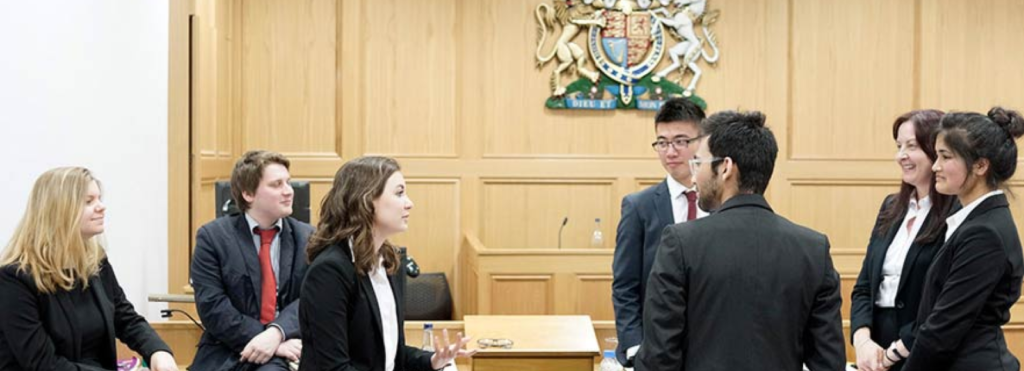- ...
Postgraduate Studentships - Search for funding opportunities.
Postgraduate Studentships - Search for funding opportunities.

In September 2021 the Solicitors Regulation Authority (who are the regulator of solicitors and law firms in England and Wales) introduced a new way of qualifying to become a solicitor. The Solicitors Qualifying Examination (SQE) was introduced, and Universities added the examination into their portfolio of masters courses.
For a number of years, the steps to qualifying as a solicitor followed the same pattern. You were required to study a three-year undergraduate degree in Law (LLB), then take a separate Legal Practice Course (LPC) or Graduate Diploma in Law (GDL) which can take another year full time or two years part time.
Once completed the student looked for a training contract with a law firm which would provide the relevant legal work experience. Law firms may offer some support to the student with living costs, but generally the student is expected to cover the tuition fees themselves. On completion of the LPC/GDL the student can apply for admission as a solicitor.
The new SQE is a step change in developing legal careers and marks a new way of qualifying to become a solicitor. It comprises of an assessed exam, two years qualifying work experience and checks on your character and suitability.
From now on the SRA will accept a student to complete the SQE who has completed any undergraduate degree subject – it does not have to be an undergraduate degree in law. In addition, they will accept equivalence to a degree using other qualifications and/or relevant work experience.
This opens up the opportunities to many more students. If you have taken other pathways in your studies from the traditional routes, or if you have relevant work experience you can consider a career as a solicitor.
The student needs to register two years qualifying work experience before they apply for admission to take the SQE. However, this work experience can be earned in ‘roles providing legal services’ which can be acquired in a number of different sectors.
So long as the student has the ‘opportunity to develop some (or all) of the competences needed to practise as a solicitor’ then this is recognised. Some Universities are recruiting for courses in 2022. These include SQE preparation in the Masters of Laws (LLM) degrees, or as separate stand-alone courses
The SQE is in two parts. SQE1 focuses on functioning legal knowledge and SQE2 on practical legal skills and knowledge.
SQE1 tests functioning legal knowledge (FLK). The exam has two parts - FLK1 and FLK2. SQE1 takes place over two non-consecutive days, and both FLK1 and FLK2 are single best answer multiple-choice tests.
The subject areas covered by the two parts of SQE1 are:
SQE2 assesses practical legal skills. It also has two parts - oral assessments over two consecutive half days, and written assessments over three consecutive half days. The SQE2 looks at Legal skills assessments such as:
Questions in these practice areas may draw on underlying black letter law in the Functioning Legal Knowledge (FLK) such as:-
Students need to undertake work experience. Up to four different organisations count towards the total. This could include time spent on paid or volunteer work:
The work done has to be relevant legal work – just being employed or volunteering at a law firm or advisory service to do IT or admin is not good enough. The student and the employer have to keep records of the work done. This will need to be confirmed by the relevant compliance officer for the legal practice, a solicitor in the company or a nominated solicitor with knowledge of the candidate’s work. Remember the objective of the work experience is to assess the prescribed competences for solicitors.
Universities and other providers offer a range of courses or included preparation for the SQE within a specified masters degree programme.
The timetable of assessment for the SQE is scheduled a number of times each year, so don’t worry about time to prepare. If you successfully pass both parts of the SOE, you will be able to complete the requirements within 12 months.
Students can only attempt the SQE three times during a six year period – you will have to wait until the six years have expired before you can try again. Additionally, there are restrictions on resits just to improve your marks.
Successfully completing the requirements of the SQE will be a challenge, however, the SQE is a big improvement. The introduction of these changes many more candidates can take advantage of this new way of qualifying to become a solicitor.
Sign up to Postgraduate Studentships
Sign up to compare masters
Thanks for making your selection. Click below to view your comparisons.